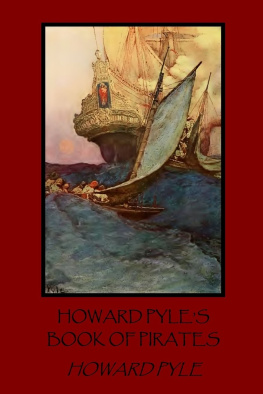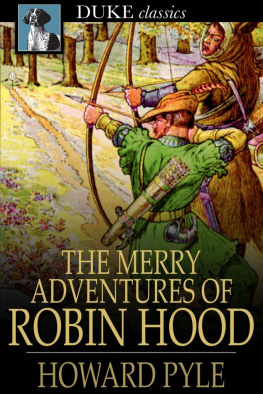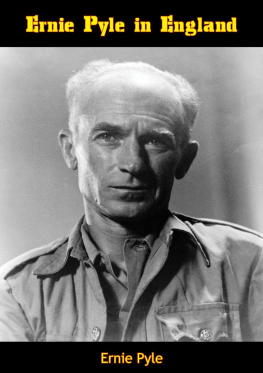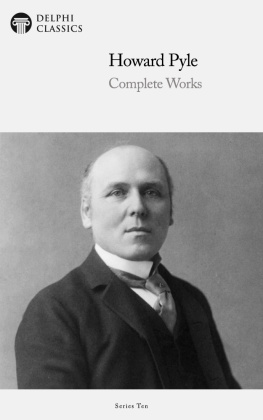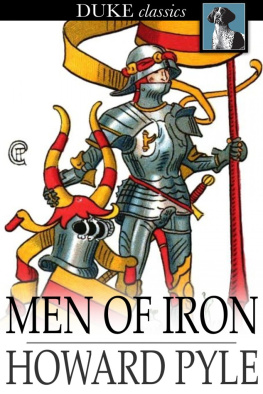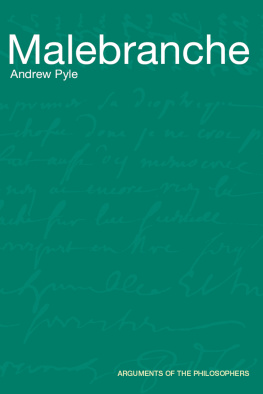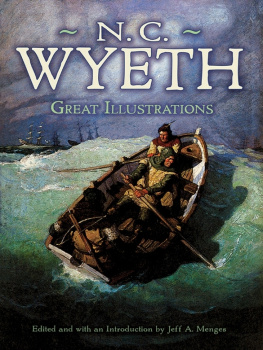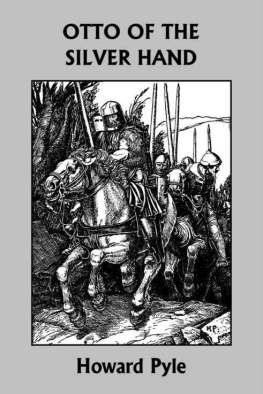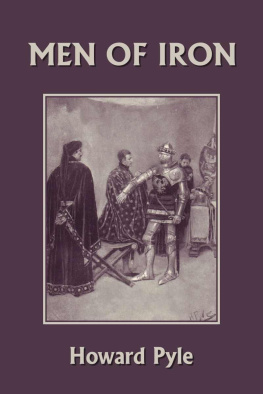Pyle - Howard Pyles Book of Pirates
Here you can read online Pyle - Howard Pyles Book of Pirates full text of the book (entire story) in english for free. Download pdf and epub, get meaning, cover and reviews about this ebook. year: 2012, publisher: lulu.com, genre: Adventure. Description of the work, (preface) as well as reviews are available. Best literature library LitArk.com created for fans of good reading and offers a wide selection of genres:
Romance novel
Science fiction
Adventure
Detective
Science
History
Home and family
Prose
Art
Politics
Computer
Non-fiction
Religion
Business
Children
Humor
Choose a favorite category and find really read worthwhile books. Enjoy immersion in the world of imagination, feel the emotions of the characters or learn something new for yourself, make an fascinating discovery.
Howard Pyles Book of Pirates: summary, description and annotation
We offer to read an annotation, description, summary or preface (depends on what the author of the book "Howard Pyles Book of Pirates" wrote himself). If you haven't found the necessary information about the book — write in the comments, we will try to find it.
Howard Pyle (March 5, 1853 - November 9, 1911) was an American illustrator and author, primarily of books for young people. A native of Wilmington, Delaware, he spent the last year of his life in Florence, Italy.
In 1894 he began teaching illustration at the Drexel Institute of Art, Science and Industry (now Drexel University). After 1900, he founded his own school of art and illustration, named the Howard Pyle School of Illustration Art. The scholar Henry C. Pitz later used the term Brandywine School for the illustration artists and Wyeth family artists of the Brandywine region, several of whom had studied with Pyle. Some of his more notable students were N. C. Wyeth, Frank Schoonover, Elenore Abbott, Ethel Franklin Betts, Anna Whelan Betts, Harvey Dunn, Clyde O. DeLand, Philip R. Goodwin, Thornton Oakley, Violet Oakley, Ellen Bernard Thompson Pyle, Olive Rush, Allen Tupper True, Elizabeth Shippen Green, Arthur E. Becher, William James Aylward, and Jessie Willcox Smith. Pyles home and studio in Wilmington, where he taught his students, is still standing and is listed on the National Register of Historic Places.
His 1883 classic publication The Merry Adventures of Robin Hood remains in print, and his other books, frequently with medieval European settings, include a four-volume set on King Arthur. He is also well known for his illustrations of pirates, and is credited with creating what has become the modern stereotype of pirate dress. He published his first novel, Otto of the Silver Hand, in 1888. He also illustrated historical and adventure stories for periodicals such as Harpers Weekly and St. Nicholas Magazine. His novel Men of Iron was adapted as the movie The Black Shield of Falworth (1954).
Pyle travelled to Florence, Italy in 1910 to study mural painting. He died there in 1911 of a sudden kidney infection (Brights Disease).
Pyle was widely respected during his life and continues to be well regarded by illustrators and fine artists. Vincent van Gogh, a contemporary, wrote in a letter to his brother Theo that Pyles work ... struck me dumb with admiration.
Pyles reputation stems from his innovation in form and illustration, creating an American school of illustration and art, and for the revival of childrens books. Twentieth-Century Literary Criticism notes:
As time passed, Pyles historical position as the founder of a distinctly American school of illustration and art, as the innovator who introduced the total-design approach, and as the great reinventor of childrens books, would outshine any single work he did, so that he is remembered less for any one project than for his total stance.
He had a lasting influence on a number of artists who became notable in their own right: N. C. Wyeth, Frank Schoonover, Stanley Arthur, and numerous others studied under him. According to Robert Vitz, the Howard Pyle School of Art developed a common set of themes in its work: attention to realism, and expression of optimism and a faith in the goodness of America.[4] His work also continued to inspire well after his death; for example, comic book artist Tony Harris (born 1969) has cited Pyle as a major influence on his work.
Library : General
Formats : EPUB
ISBN : 9781505370317
Pyle: author's other books
Who wrote Howard Pyles Book of Pirates? Find out the surname, the name of the author of the book and a list of all author's works by series.

